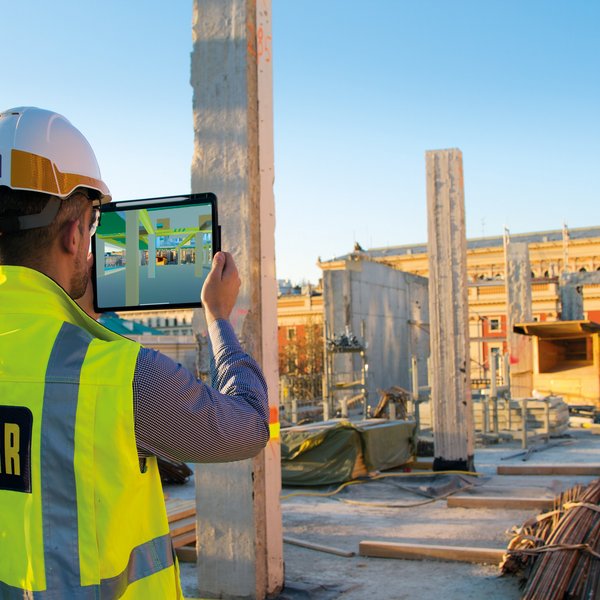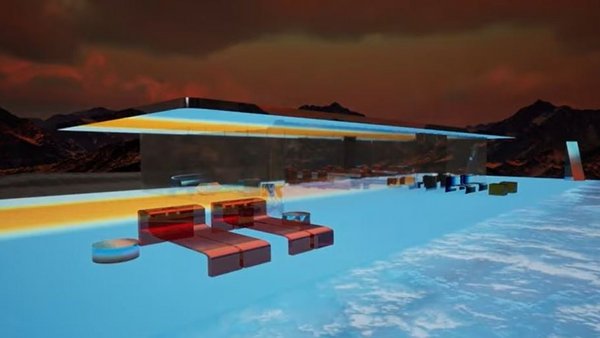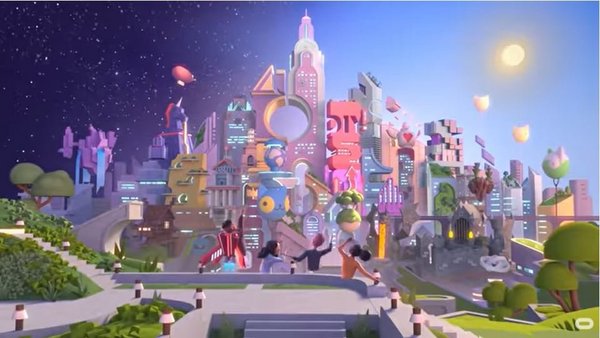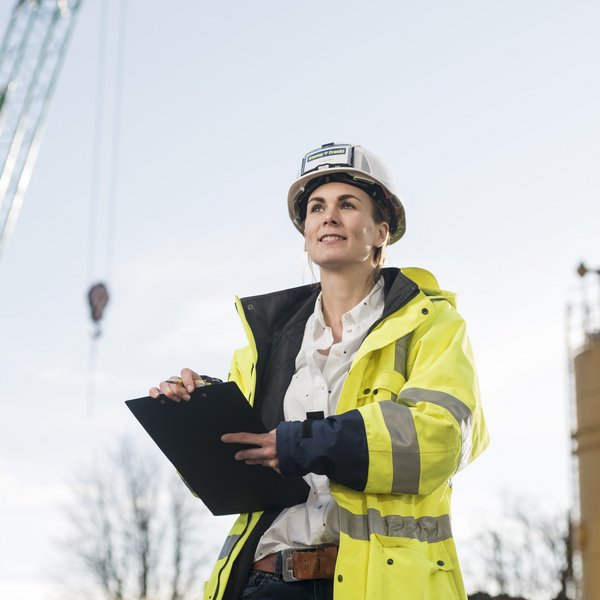
Metaverse: An opportunity for the construction sector?
I think there's a world market for maybe five computers.
There is no reason for any individual to have a computer in his home.
I see little commercial potential for the internet for the next 10 years.
You won’t always have a calculator in your pocket.
Time has shown again and again: To err is human. And time will also tell whether Elon Musk, cofounder and CEO of Tesla, was right when he said at the end of 2021: “I don’t see someone strapping a frigging screen to their face all day and not wanting to ever leave. That seems — no way”. He said this as a reaction to Mark Zuckerberg’s vision of the future, presented in October 2021. After all, if it was up to the founder and chairman of Meta, we would all soon be strapping virtual reality headsets to our face and diving in to a completely new internet.
Welcome to the Metaverse
The Metaverse is something like a virtual parallel universe. You enter it – ideally – with a VR headset. But you can also access the Metaverse via your desktop or smartphone. When you arrive, the first job is to make an avatar, i.e. a virtual You. This is who you will use to discover a digital world. A world in which you meet other people, go to lectures, concerts or parties, shop or even work. What’s more, you can design the Metaverse yourself. And live as a robot in a flying house. Or as a princess in a fairy-tale castle. Or as a digital twin in a space station. Nothing is impossible here. Here you can be whoever and whatever you wish. Leading what amounts to second life in a virtual reality. Incidentally, Second Life is also the name of Metaverse’s predecessor. But the game, which has been around since 2003, hit its peak back in 2007 in terms of active users. And VR headsets are also nothing new. Although the revolutionary breakthrough is yet to materialise. But now the different components seem to be coming together. And with it, you can almost feel the winds of change, as Mark Zuckerberg says: “I believe the Metaverse is the next chapter of the internet”. If that proves true, it will have a not insignificant impact on real life as well. In every sector. Including the construction and real-estate industry.
I believe the Metaverse is the next chapter of the internet.
Virtual reality, real business
In the Metaverse you can wander down the high street, pop into Gucci or Sotheby’s and actually buy things. Like an online store, but with the small difference that you are not only looking at a screen but also standing in a virtual shop. Cryptocurrency is used for payment. Events are held here as well. The rapper Snoop Dogg for example, threw a party and invited people to his virtual villa. Entrance passes changed hands for around 4,000 dollars. And in the Metaverse people also sell virtual plots of land. To the tune of 100 million dollars. Every week. The company Republic Realm, for example, bought for 4.3 million dollars’ worth of land on The Sandbox.
New jobs
So, the Metaverse offers a wide range of almost infinite opportunities. Also opportunities to earn money. You could mix tracks as a DJ, dress other avatars as a stylist or give tuition as a teacher. There’s also a lot to do in the parallel universe for architects and the construction sector. After all, the Metaverse needs shaping. And virtual reality is an optimal reality for the construction and real-estate industry. After all, the laws of physics are not in play here. There are no zoning laws. And the supply of construction materials is limitless. Put simply: anything is possible. And your fantasy knows no bounds. You could even open a branch office, build unique homes and other buildings, and then sell them.
Unique comes at a price
The market for so-called NFTs, i.e. Non-Fungible Tokens, is flourishing. NFTs are unique digital items that cannot be exchanged or copied. In the real world, for example, Leonardo da Vinci’s The Last Supper would be an NFT. And in exactly the same way, digital items produced and sold in the Metaverse can be unique. An NFT Formula 1 racing car was sold for 113,000 dollars in a game. The rapper Eminem coughed up 462,000 dollars for a drawing of a Bored Ape. In the first quarter of 2021, 10% of global turnover in the art world came from NFTs. This is naturally also an opportunity for the construction and real-estate sector. Unique buildings can fetch very real sums in the digital world. One example: Canadian artist Krista Kim sold the Mars House she designed last year. The NFT brought in half a million dollars.
Unanswered questions
Many questions are still unanswered. Will there be a Metaverse for everyone? At the moment, the different platforms are not linked together. And some will probably fall by the wayside. But should you still invest now? Will Mark Zuckerberg’s vision become the new reality? His Metaverse is coming closer and closer to being realised. Will each of us soon have an avatar in Meta’s Horizon Worlds? What data will we have to sacrifice for that? How dangerous is it when a company like Meta, which also owns Facebook, Instagram, WhatsApp and Oculus and already attracts ample criticism, creates a new world and thereby secures even more power? And is there even any way of preventing this? Who will monitor the Metaverse? What crime will there be? And how will cities work in the Metaverse? What will they look like?
But the most important question may well be this: is the Metaverse really the next chapter of the internet? There are many indications that this is the case. Many things are developing in this direction. VR headsets, computers, smartphones, tablets, smartwatches and augmented reality glasses will all link up. The way we consume the internet and behave as users will change. And with it, so will our real lives. Maybe there will then also be a PORR branch office in the Metaverse. And anyone will be able to buy one of our virtual houses. Only time will tell.





